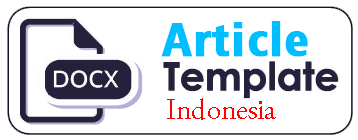Reactivation and transformation of subsidized food program during the covid-19 pandemic
DOI:
https://doi.org/10.54849/monas.v4i1.98Keywords:
subsidized food program, welfare, povertyAbstract
The COVID-19 pandemic has reduced the welfare of the people of Jakarta. This can be seen from the increase in the number of poor people in Jakarta from 365.55 thousand people (2019) to 498.29 thousand people (2021) and the increase in the Gini ratio from 0.391 (2019) to 0.411 (2021). Government policies during the pandemic generally focus on distributing social assistance and assisting micro, small and medium enterprises, even though there are other policies such as subsidized food program. Research on subsidized food program is important to understand the implementation of policies to reduce poverty and improve people's welfare. This study aims to provide an explanation of the reactivation and transformation of the subsidized food program in Jakarta. The method used to answer the research is through literature studies and policy implementation in the field. The results showed that the reactivation of the subsidized food program was carried out as part of the social safety net policy to meet the food needs of certain communities, such as students from poor families, elderly and persons with disabilities who cannot fulfill their basic needs. The target beneficiaries are around 1 million people in 2021 and 2022. The registration mechanism is undergoing a transformation from an offline system to a combination of offline and online system. The distribution mechanism uses daily quotas and applies health protocols. There will be an increase in the value of the 2021-2022 subsidy from Rp. 246,800/person or 66% of the total food price to Rp. 268,500/person or 68% of the total food price
Downloads
Published
Issue
Section
License
Authors who publish in this journal agree to the following terms:
- Authors retain copyright and grant the journal right of first publication with the work simultaneously licensed under a Creative Commons Attribution-NonCommercial-ShareAlike 4.0 International License that allows others to share the work with an acknowledgement of the work's authorship and initial publication in this journal.
- The journal allows the authors to hold the copyright without restrictions and to retain publishing rights without restrictions.
- Authors can enter into separate, additional contractual arrangements for the non-exclusive distribution of the journal's published version of the work (e.g., post it to an institutional repository or publish it in a book), with an acknowledgement of its initial publication in this journal.








